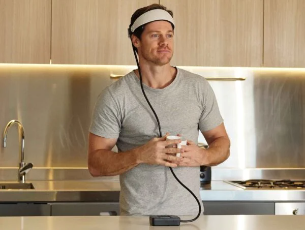Anxiety is a sensation of disquiet, worry, or nervousness, usually in response to an unknown event or scenario. Anxiety is something that everyone experiences from time to time. When confronted with an issue at work, before taking a test, or before making a major decision, you may feel apprehensive. Try these approaches for anxiety management.
Eat Healthy and Drink Plenty of Water
Eating healthily is important for both physical and mental health. Avoid overeating whilst also eating plenty of fresh fruits and vegetables. Regularly eating seafood high in omega-3 fatty acids, such as salmon, may also help. Drink plenty of water as well. Dehydration can affect your mood. So make sure you hydrate by drinking at least 8 glasses of water every day. Store your water in a glass bottle to maintain its purity and taste.Glass bottles are also easier to clean than plastic ones.
Practice Mindfulness Meditation
Practice mindfulness meditation for 40-45 minutes every day. This meditation technique brings you back to the moment by focusing your thoughts and detaching you from anxious thoughts. You will lower your stress levels, have a better understanding of your discomfort, connect better, enhance your focus, become kinder to yourself when you meditate.
Get Physically Active
Physical activity can ease anxiety symptoms and make you feel better. Exercise alters brain chemistry, resulting in a soothing impact and a reduction in anxiety symptoms. It also enhances feel-good hormones in the brain while decreasing chemicals that exacerbate depression symptoms. Exercise can also help you sleep better, which can be hampered by stress, depression, and anxiety.
Limit Caffeine Consumption
Caffeine usage is generally regarded as harmless, though it can become addictive. Anxiety, restlessness, tremors, irregular pulse, and difficulty sleeping are some negative effects connected with excessive consumption. Caffeine makes anxiety symptoms worse. Because it's a stimulant, it boosts anxiety by speeding up bodily functions.If you have chronic anxiety, ditch caffeine or consume it strategically.
Try Breathing Exercises
Take a deep breath in and exhale slowly. You may have already noticed a difference in your mood. Your breath is a tremendous tool for reducing anxiety and stress. Breathing exercises can help slow your heart and hence induce calmness. You signal your nervous system to calm down by breathing slower and more deeply from your stomach. You can learn how to do deep breathing exercises by watching the numerous tutorials available on YouTube. If you want a super visual experience from any viewing direction, purchase a mini LED screen. With its high dynamic visual display technology, it will give you the most immersive visual experience.
Wear Makeup
Yes, makeup can help ease anxiety. Applying makeup is therapeutic. Cosmetics, assist the body and mind to slow down and focus carefully on something.When applying makeup, you pick your colors, what make up products and makeup brushes you want to use, and therefore you can count on predictable results. All these ritualistic processes give you a sense of control and hence helps you grapple with unsettling feelings of anxiety or lack of control.If you start to get anxious, just sit down and start wearing your stunning mega volume lashes or your other favorite makeup products and your anxiety will settle down.
Visualize Positive Things
Visualization necessitates the desire, perception, and belief in something. Once you've started working toward your goal, the method and energy you put into visualization will begin to transform your life in a favorable direction over time. When you're having a panic attack, your mind may be preoccupied with worry, the worst-case scenarios, and other cognitive errors that only add to your terror. By focusing your thoughts on more soothing and serene pictures, visualization can help you unwind and relax more effectively.
Try a Relaxation App
Relaxing applications provide calming strategies to help with anxiety and linked health issues like depression. They can provide you with daily, weekly, and/or monthly programs that you can listen to as a podcast and rely on as if you have a personal life coach in your pocket. Try calm which is the best anxiety app for meditation. Relaxation apps can help you pay attention to your own thoughts and feelings, and therefore you will be able to gain the various physical and mental health benefits that come with it.
Write in a Gratitude Journal
Keeping a gratitude journal can change your life.Writing down what you're grateful for is actually good for your mental health. Dwelling on feelings of fulfillment and contentment naturally relieves stress and makes you feel quite centered and equipped to deal with whatever life throws at you. Journal once or twice every week and focus on the people you're grateful for rather than things.
Get Enough Sleep
Lack of sleep increases anxiety. You probably cut back on sleep for important reasons such as work, family or even to watch that show you love on television. If however you are not getting enough sleep regularly, you may be putting yourself at risk of developing anxiety or other diseases such as high blood pressure or diabetes. Not getting enough sleep will not only make you feel sleepy the following day, you'll also be in a bad mood and will be likely to experience significant feelings of anxiety. Get 7 to 9 hours of sleep every day for better physical and mental wellbeing.
Conclusion
Occasional anxiety is a normal part of life.However, if it becomes too frequent it can disrupt your life by impacting your relationship with others, self-confidence and ability to complete daily tasks at work or school.Try the above self-care tips and strategies to manage anxiety and take back control of your life.






















